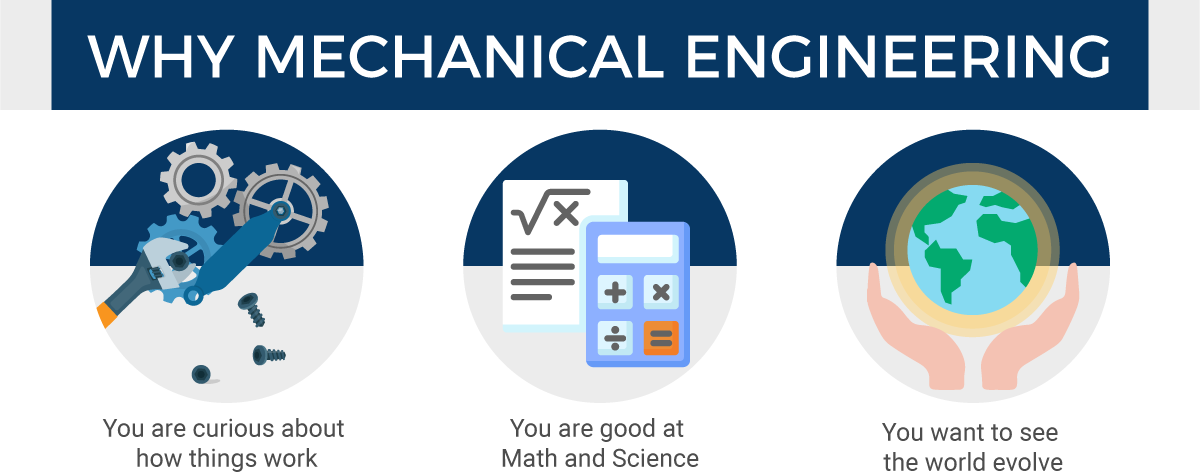Key Takeaway: Mechanical engineering tutoring (online or in-person) can significantly boost understanding of complex topics, confidence, and grades. In one program, tutored students’ success rate jumped to 90% vs. 75% for others

Why Mechanical Engineering Tutoring Matters
Many students enter mechanical engineering excited to build things, but they quickly find the workload and math to be very demanding. In fact, roughly 50% of engineering majors change fields or drop out before graduation. Early college engineering courses involve heavy physics and calculus, and even highly prepared students can struggle when fundamentals are applied to real-world problems. Tutoring matters because it offers personalized, one-on-one help that can prevent students from getting stuck on these core concepts.
Worldwide, families already rely on extra help to succeed in STEM. The private tutoring industry is booming (around $58 billion globally in 2023) and STEM subjects dominate demand. For example, about 27% of UK teens (ages 11–16) received private tutoring by 2019, and in the UAE roughly 83% of students take extra math tutoring. These trends in the USA, UK, Gulf and beyond show that many students need tutoring to tackle challenging engineering courses.
Key Challenges in Mechanical Engineering
Mechanical engineering covers a very broad range of subjects, and that breadth can be overwhelming. It combines principles of physics and mathematics to design and analyze machines and systems. Students encounter diverse topics such as:
- Mathematics and Physics: Courses like calculus, differential equations, and physics form the foundation, and they must often be applied in engineering problems.
- Statics and Dynamics: Students analyze forces and motion in structures and mechanisms, which requires strong spatial reasoning and careful calculation.
- Thermodynamics and Heat Transfer: Concepts of energy, heat, and engines involve abstract laws and complex equations, a common hurdle for many learners.
- Fluid Mechanics: Dealing with fluid flow and pressure can be daunting; one student reported feeling “overwhelmed” by the number of formulas in a fluid mechanics class.
- Strength of Materials and Design: Understanding how materials bend and break under loads (stress-strain) and using that to design parts is very challenging without practical intuition.
How Tutoring Helps Students Succeed
Tutoring provides individualized attention and practice that classrooms often cannot. Research shows that additional tutoring has a positive effect on student achievement and retention. For example, one study found engineering students who attended supplemental tutoring had a 90% pass rate compared to 75% for those who did not. In practical terms, tutors work through problems step-by-step with students and explain concepts in different ways. As one campus tutor put it, students “often know what they’re doing … they just don’t know that they know” until someone helps build their confidence. Organized, regular tutoring (sometimes called high-impact tutoring) has been shown to produce very large learning gains, up to 20 times more effective for math than generic support.
- One-on-one sessions allow students to ask questions freely and learn at their own pace.
- Tutors identify and fill gaps in understanding (for example, reinforcing algebra or physics foundations as needed).
- Working through example problems builds problem-solving skills and reinforces concepts.
- Students’ confidence grows – tutors often help them realize they grasp more than they think (many students “often know what they’re doing” after guidance).
- Higher success rates: in one engineering program, tutored students passed at a much higher rate (90% vs. 75%)}.
- Structured tutoring yields strong results – studies of high-impact tutoring show gains of several extra months of learning over a semester.
Online Mechanical Engineering Tutoring
The rise of online tutoring has made expert help available anytime, anywhere. In 2024 the global online tutoring market was about $10.4 billion and is expected to more than double by 2030. Platforms now allow students to connect with qualified tutors across time zones, so help is just a video call away. The proliferation of smartphones and high-speed internet means students can join interactive sessions from home or school. This means a student in the Gulf or UK can get live help from a specialist tutor anywhere in the world. Online tutoring also lets students review saved sessions and use digital whiteboards to visualize mechanics problems. In fact, over 80% of U.S. schools offered some tutoring support in 2022–23 (often online), reflecting how widely accepted online tutoring has become.
Finding the Right Mechanical Engineering Tutor
When hiring a mechanical engineering tutor, look for someone with strong credentials and teaching ability. Good tutors may be engineering graduates, current grad students, or experienced professionals who enjoy teaching. Ideally they have a degree in engineering or a related field and know the curriculum. In contrast to a classroom teacher, a private tutor focuses solely on one student’s needs – explaining subjects clearly, checking work step by step, and adjusting pace as needed. It’s fine to ask for references or trial sessions to ensure a good fit.
Rates for private tutors vary by location and expertise. In the U.S., a private tutor typically costs roughly $25–$80 per hour, depending on subject and level of experience. Engineering and advanced math tutors tend toward the higher end of that range. Remember that high-quality tutoring is an investment in learning; a few sessions with a great tutor can yield better grades and a deeper understanding that lasts beyond a single exam.
Mechanical Engineering Homework and Assignment Help
Many students use tutoring for homework and assignments. A mechanical engineering tutor can guide students through problem sets in courses like Statics, Dynamics or Thermodynamics, explaining each solution step. Tutors also help with lab reports, design projects, or coding assignments by clarifying requirements and demonstrating techniques. This support doesn’t mean simply giving answers – it helps students learn how to solve similar problems on their own. By working through problems together, tutors reinforce classroom lessons and build skills for future coursework.
A Student Success Story
For example, Jonas Langlois is a mechanical engineering student at UC Davis who was once at risk of failing his Fluid Mechanics class. Jonas said he was “overwhelmed with the number of formulas” he needed to memorize. After getting one-on-one help at the campus tutoring center, Jonas found he “was able to do much better in class”. This turning point highlights how targeted tutoring can transform a student’s performance; tutors at UC Davis note that struggling students often just need the right hint to see that they are on the right track. Jonas’s story shows that even university students can catch up and succeed when given personalized support.
Frequently Asked Questions
- What is mechanical engineering tutoring? One-on-one or small-group instruction by an expert to help students understand and apply mechanical engineering concepts.
- How does online mechanical engineering tutoring work? Students connect with tutors via video call, shared whiteboards or chat, so they can get homework help and concept explanations from anywhere.
- What subjects do mechanical engineering tutors cover? Tutors can help with a wide range of topics – from high school physics and calculus to university courses like thermodynamics, fluid mechanics and machine design.
- How can mechanical engineering homework help improve grades? By working through problems step-by-step with a tutor, students reinforce learning and usually perform better on exams and assignments.
- When should I hire a mechanical engineering tutor? When a student struggles with key topics or needs extra practice – for example, if homework is consistently difficult or grades are slipping.
- What does mechanical engineering assignment help involve? Tutors guide students through projects and assignments, explaining concepts so the student completes work with understanding (not just giving answers).
Related Subjects:
Computational Mechanics
Computer Aided Manufacturing (CAM)
COMSOL Multiphysics
Design of Machine Elements
Dynamics of Machine
Energy Engineering
Engineering Dynamics
Engineering Ethics
Engineering Mechanics
Engineering Statics
Engineering Thermodynamics
Finite Element Analysis (FEA)
Finite Element Method (FEM)
Fluid Dynamics
Fluid Mechanics
Fluid Statics
Heat Transfer
HVAC
Hydraulics
IC Engines
Kinematics of Machines
LABVIEW
LS-Dyna
Manufacturing Processes
Mass Transfer
Mechanical Measurements (Metrology)
Mechanical Vibrations
Mechanics of Materials
Nastran
Nonlinear Control Systems
Pneumatics
Product design
Product Lifecycle Management (PLM)
Rapid Prototyping
ROS (Robot Operating System)
Simulink
Solid Edge
Solid Mechanics
SolidCAM
Strength of Materials
Theory of Machines
Thermal Engineering
Thermodynamics
Thermofluids
Vehicle Engineering
******************************
This article provides general educational guidance only. It is NOT official exam policy, professional academic advice, or guaranteed results. Always verify information with your school, official exam boards (College Board, Cambridge, IB), or qualified professionals before making decisions. Read Full Policies & Disclaimer , Contact Us To Report An Error

